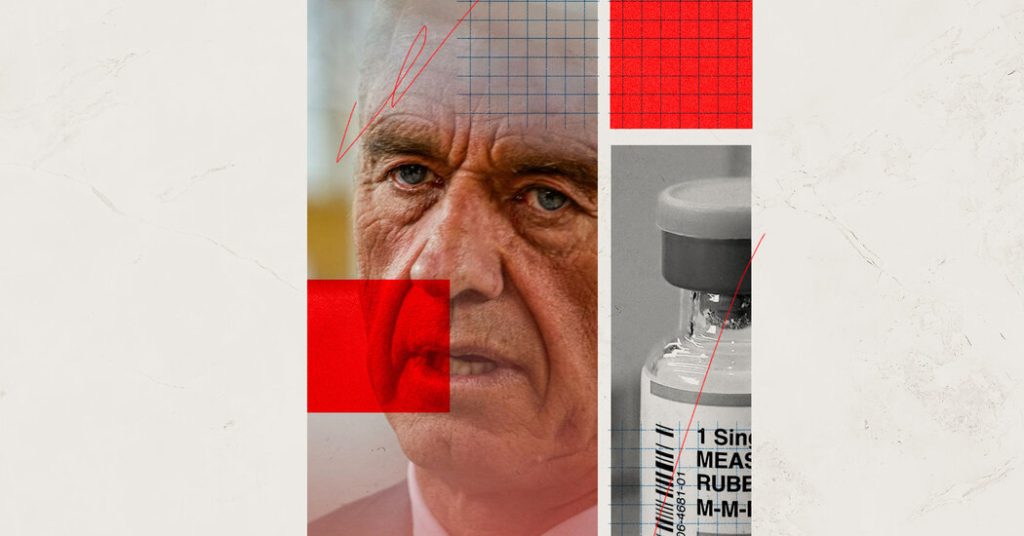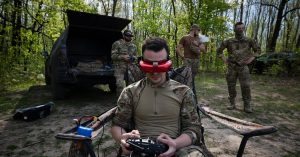Alexandra Sifferlin, a health and science editor for Times Opinion, hosted a written conversation with the Opinion columnist Ross Douthat and the Opinion writers Jessica Grose and David Wallace-Wells about Robert F. Kennedy Jr.’s first two months as secretary of health and human services.
Alexandra Sifferlin: Robert F. Kennedy Jr. vowed to tackle chronic disease and take on the food and pharmaceutical industries. But his response to a measles outbreak in the Southwest — and inflammatory remarks about autism at a press briefing — have drawn criticism from all sides.
Ross,you’ve written about your own experiences with chronic illness and the limitations of the U.S. medical system. What’s been your view of Kennedy’s Make America Healthy Again movement, and what do you make of his tenure as health leader so far?
Ross Douthat: I think debates about the limitations of the U.S. medical system tend to be polarized in a very, shall we say, unhealthy way. On one side, you have people who haven’t hit the limits of medical consensus and knowledge in their own lives, and therefore struggle to understand why so many of their fellow citizens would want to wander outside those limits in search of answers or wisdom. On the other side, you have people with very good reasons for skepticism of conventional wisdom, but who have allowed that skepticism to become total, making them reject everything the establishment says while fastening onto a specific outsider narrative as an absolute alternative even if the evidence is lacking.
On a lot of fronts, Kennedy and the MAHA movement exhibit the latter problem. There’s absolutely room for new research and new debate about the causes of chronic illness, or autism or obesity — all areas where the official understanding of things doesn’t have definite answers for a lot of people. And there’s always good reason for skepticism about the medical-industrial complex writ large. But Kennedy seems committed to his own set of low-evidence theories — the vaccine-autism link being the most prominent example — and he seems to be working backward from the outsider perspective, rather than trying to genuinely create dialogue between the establishment and its critics.
David Wallace-Wells: I’m not sure it’s even just low-evidence theories. I worry about the quality of the evidence demonstrating the problem. One thing I’d really like to see an autism commission tackle is the seemingly simple question of to what degree we actually are really living through an epidemic. I think there are reasons to worry about an increase in cases, and about environmental factors contributing. But I also think the alarming charts you see showing exponential growth in prevalence are really not very credible, and yet they are what is powering our panic.













